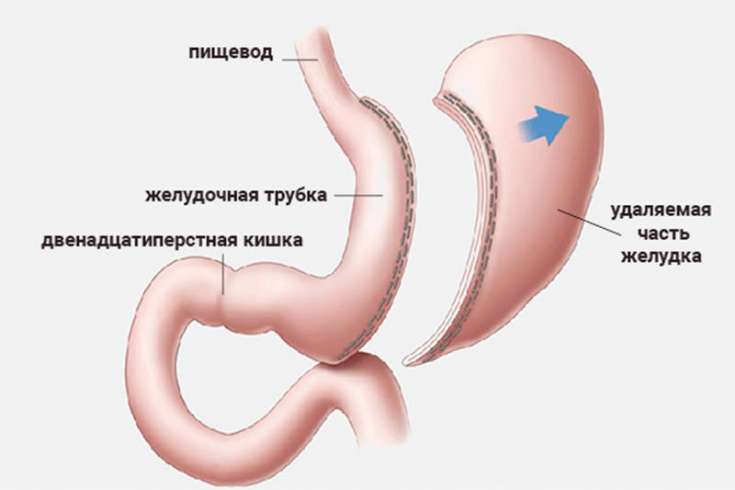Bariatric surgery, which served as the prototype for tens of thousands of subsequent similar surgeries, was first performed in the fifties of the last century. The essence of the operation was to remove most of the small intestine from the digestion process.
Today, there are many varieties of bariatric surgery that are aimed at reducing the area of the gastrointestinal tract and, accordingly, the number of calories consumed due to the development of the effect of malabsorption.
In this article on estet-portal.com read about the types of bariatric surgeries: gastric bypass and sleeve gastroplasty, as well as indications and contraindications for their performance.
Bariatric surgery: when is surgical treatment of obesity recommended
Bariatric surgery can be performed on patients between the ages of 20 and 65. This method of surgical treatment of obesity is recommended in such cases:
1. Body mass index greater than 40 kg/m2;
2. Body mass index is 35-40 kg/m2, and the patient has pathologies such as:
a. type 2 diabetes mellitus;
b. sleep apnea requiring CPAP therapy
c. hypertension;d. severe diseases of the musculoskeletal system associated with obesity.
The patient should be informed that the success of the surgical treatment of obesity directly depends on their adherence to nutritional recommendations in the future. Bariatric surgery achieves amazing results in most cases: in 85% of patients, weight loss was at least 50% of the total overweight.
Read also: Possibilities of cryolipolysis in the fight against local fat deposits
Gastric bypass: advantages and disadvantages of this methodThe most popular types of bariatric surgery are gastric bypass and sleeve gastroplasty.
Gastric Bypass – the most common, complex and effective operation in the field of bariatric surgery.
The essence of the operation is as follows: during the operation, the stomach cavity is divided into two sections: a smaller one ("small" stomach) and a larger one. The capacity of the "small stomach" is about 30 ml, which allows a person to feel full after eating a small amount of food. In this case, the distal part of the small intestine is directly connected to this very "small stomach"; (creation of a shunt). Thus, not only the volume of food intake is reduced, but also the total absorption of food, which allows you to achieve a quick and effective weight loss.
Liposuction: a unique approach to a popular procedure
The advantage of this operation is also the possibility of performing it by the laparoscopic method. The patient must also be informed about the disadvantages of this surgical intervention. In particular, after gastric bypass surgery, typical endoscopic examinations become impossible. In addition, the rapid movement of food from the stomach into the intestine through the created shunt can lead to significant changes in the level of glycemia.

Sleeve gastroplasty consists in reducing the volume of the stomach by resection of the longitudinal resection of its body and fundus along the lesser curvature. Due to this, the stomach takes the form of a sleeve with a diameter of about 1 cm. After that, the accumulation of food mostly occurs in its antrum, and the total volume of the stomach decreases 10 times (from 1-1.5 liters to 100-150 ml).
This operation is also not exclusively restrictive. Studies confirm a decrease in blood levels of ghrelin after sleeve gastroplasty, since this hormone is produced in the part of the stomach that is being removed. The results of weight loss in patients after gastric sleeve surgery during two years of follow-up were as successful as after gastric bypass surgery.
What are the contraindications for bariatric surgery
Despite the success of the results of bariatric surgery, there are some indications for their implementation.
In an obese patient, it is important to take a correct life history. One of the contraindications to bariatric surgery is the patient's addiction to alcohol.
Bariatric surgery is also contraindicated in patients with severe decompensated systemic diseases (autoimmune, neurological, cardiovascular and other pathologies), & nbsp; cirrhosis of the liver, as well as severe mental illness, including eating disorders.
The operation should not be performed if the patient has diseases affecting the upper gastrointestinal tract (for example, gastric or duodenal ulcer).
Thank you for staying with estet-portal.com. Read other interesting articles in the "Plastic Surgery" section. You might also be interested in
Obesity treatment: tried and proven medications.







Add a comment